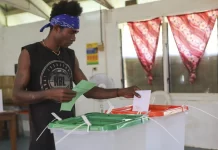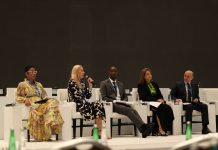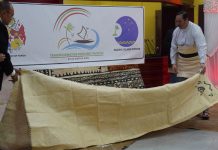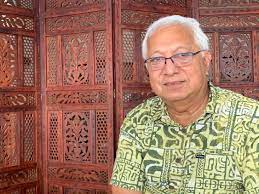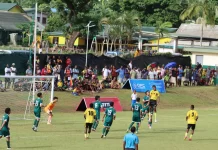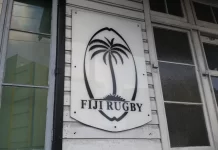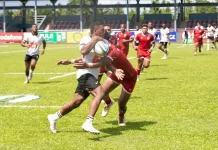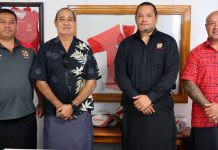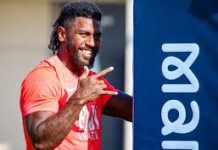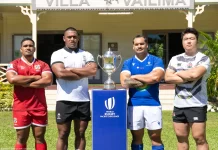It’s now 101 days to the long-awaited Tokyo Olympics. The uncertainties and delay in staging of the 2020 Games, and the impact of the coronavirus pandemic on training, qualification processes and mobility, means that for Pacific islands athletes, just making it to Japan will be a feat in itself.
Globally, 61% of the athlete quota places have already been allocated. 25% will be assigned during the remaining qualification period, which will run until 29 June; and the final 14% of athletes will be selected through rankings as per the respective qualification system for each sport.
Samoa boxers Marion Faustino Ah Tong and Tupuola Ato Plodzicki-Faoagali are the most recent Pacific island qualifiers for Japan, joining athletes in rugby, weightlifting, canoeing, and wrestling amongst other sports. Qualification processes continue in other disciplines, including athletics, swimming, judo, archery, and beach volleyball, where Vanuatu’s women stand a chance of qualifying.
Once they get to Japan, the athletes’ experience will be very different from previous games, says Oceania National Olympic Committees (ONOC) President Dr Robin Mitchell.
For a start, there will be no international spectators although how this applies to many national dignitaries—heads of states and sports minister who traditionally attend the Olympics—is unclear. They booked years ago, and Dr Mitchell says the hefty deposits they paid at that time are non-refundable.
Olympics playbooks lay out requirements for travel and participation in Japan. They will continue to be refined as the Games near, but Dr Mitchell is confident Pacific island delegations will be compliant, as “it’s fairly close to what we are practicing in the Western Pacific,” and follows WHO advice, noting that the region is used to dealing with health outbreaks and natural disasters.
Athletes and officials in Japan will need to keep a diary of their movements, will have to use Games rather than public transport, and will follow an activation plan if they do test positive for COVID.
“Our training centre pre-games is Fukuoka and [it]has direct flights. But for Games time, they would prefer to fly to Tokyo because they have specified lanes to go through, straight into the bus, to the village,” Dr Mitchell says.
“Once you get to Tokyo, there’s quite a lot of changes in the sense that the Games Village will probably at the most only be up to a third full…You cannot go to a village until four days before your event. And then two days after you have to leave the village and Tokyo as well.”
“For us the big unknown is, how are we going to get there? And how do we get back again?” Dr Mitchell says. ONOC is looking at charter flights and one option is to use Nadi and Guam as staging points, where Pacific athletes can meet and then travel together.
ONOC has provided training and funding as part of the Olympics build-up, but also as part of sports and sports management/training development more broadly. This training series has been delivered online, from basic courses in meeting processes and book-keeping to Masters levels programs.
“We’re getting quite smart at doing webinars and stuff like that…and Oceania tends to pilot a lot of projects,” Dr Mitchell says.
SOURCE: ISLANDS BUSINESS/PACNEWS


